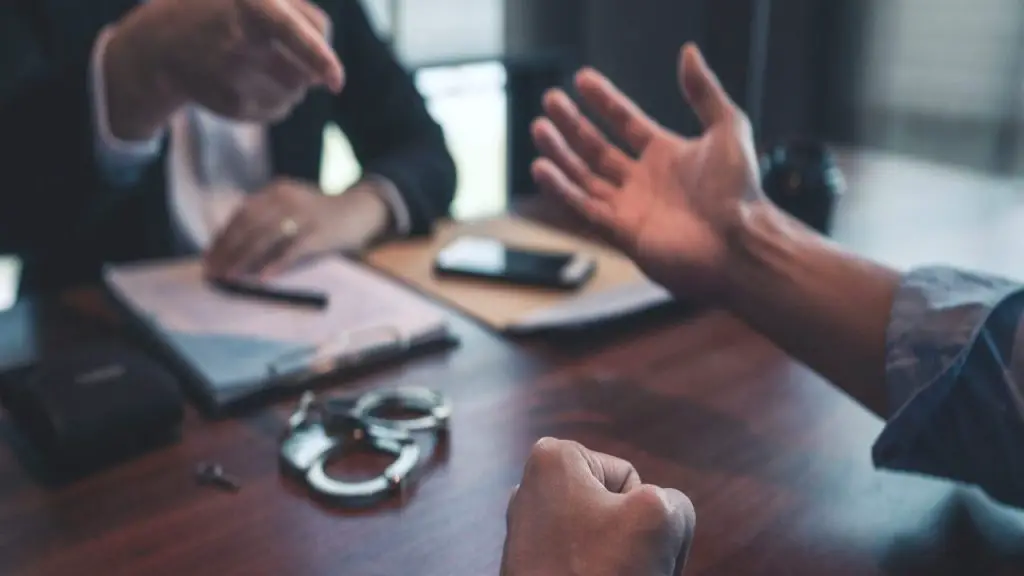Probation is often seen as a second chance for those who have committed a crime. However, what happens if you violate probation for the first time? Will you be sent back to jail?
Probation is a period of supervision ordered by the court as an alternative to incarceration. It is granted to individuals who have committed a crime but have been deemed eligible for rehabilitation.
While probation can be a great opportunity to turn your life around, it comes with strict conditions that must be followed.
It is crucial to understand the consequences of violating probation, especially if you are a first-time offender. The severity of the consequences will depend on the nature of the violation and the discretion of the judge.
In this article, we will discuss what happens if you violate probation for the first time and what steps you can take to minimize the damage.
Introduction to probation and its purpose
Probation is a legal term that refers to a period of time during which a person who has been convicted of a crime is allowed to remain in the community under the supervision of a probation officer, rather than being sent to jail.
The purpose of probation is to provide an opportunity for the offender to rehabilitate themselves, while also protecting the community from further harm.
Probation typically involves a set of conditions that the offender must follow, such as attending counseling or treatment programs, staying away from drugs and alcohol, and reporting regularly to their probation officer.
If the offender violates any of these conditions, they may be sent back to jail.
What happens if you Violate Probation for the First Time?

1. Arrest and Incarceration
One of the most immediate consequences of a probation violation is an arrest and possible incarceration.
If the violation is severe enough, the probation officer may request a warrant for your arrest, and you may be taken into custody until your court hearing.
2. Extended Probation
If you violate your probation, the court may extend your probation period. This means that you will have to spend more time under probation supervision, which may include regular check-ins, drug tests, and a curfew.
3. Fines and Penalties
Courts may impose fines and penalties for probation violations. These fines can be substantial and may put a significant financial strain on you.
Additionally, you may be ordered to pay restitution or compensation to the victim of the crime that led to your probation.
4. Community Service
As a consequence of probation violation, the court may require you to complete community service. This may include picking up trash, assisting at a local shelter, or performing other tasks that benefit the community.
5. Revocation of Probation
If you violate your probation, the court may choose to revoke it entirely. This means that you will be sent to jail or prison to serve the remainder of your sentence.
Additionally, a revoked probation can have long-term consequences, including difficulty finding employment, obtaining housing, and obtaining financial aid.
6. Loss of Freedom
Being on probation means that you have certain limitations on your freedom. If you violate your probation, these limitations may become even more restrictive.
You may be required to wear an ankle monitor, be subjected to house arrest, or have your movements severely curtailed.
7. Negative Impact on Future Opportunities
A probation violation can have long-lasting consequences on your future opportunities.
It can affect your ability to get a job, obtain a professional license, and even vote. It can also impact your personal relationships and reputation in the community.
Possible penalties and punishments
Warning
Some probation officers may choose to give a warning for minor violations, especially if it is a first-time offense.
This warning may come in the form of a verbal or written warning and may include a reminder of the terms of the probation.
Increased supervision
A probation officer may increase the level of supervision for a probationer who violates the terms of their probation. This may include more frequent check-ins, drug testing, or electronic monitoring.
Community service
Community service is a common punishment for probation violations. The probationer may be required to complete a certain number of hours of community service as a way to make up for the violation.
Fines
Fines are another possible punishment for probation violations. The amount of the fine will depend on the severity of the violation and the terms of the probation.
Jail time
In some cases, a probationer may be sentenced to jail time for violating their probation. This is more likely to happen if the violation is serious or if the probationer has a history of violations.
Extension of probation
If a probationer violates their probation, their probation may be extended as a punishment. This means that they will have to continue to meet the terms of their probation for a longer period of time.
Revocation of probation
In the most serious cases, a probationer may have their probation revoked as a punishment for a violation. This means that they will be sent to jail or prison to serve the remainder of their sentence.
Factors that may influence the severity of the consequences
The severity of the original offense
The more serious the original offense that led to probation, the more likely a violation will result in harsher consequences. Judges may be less forgiving if the original offense was violent or involved drugs.
The nature of the probation violation
The type of violation can also impact the severity of the consequences. A minor violation, such as missing a meeting with a probation officer, may result in a warning or a short jail sentence.
However, a more serious violation, such as committing another crime while on probation, can result in a longer jail sentence or even revocation of probation altogether.
The defendant’s criminal history
A defendant with a history of criminal offenses is more likely to receive harsher consequences for a probation violation.
Judges may view repeat offenders as more of a risk to society and may be less likely to offer leniency.
The defendant’s compliance with probation
If the defendant has been compliant with the terms of probation up until the violation, they may receive more lenient consequences.
Judges may view a minor violation as a one-time mistake and may be more willing to offer a second chance.
The defendant’s attitude and behavior
The defendant’s attitude and behavior during the probation violation hearing can also influence the severity of the consequences. If the defendant shows remorse and takes responsibility for their actions, the judge may be more lenient.
However, if the defendant is uncooperative or shows a lack of remorse, the judge may be more likely to impose harsher consequences.
The recommendations of the probation officer
The probation officer’s recommendations can also influence the severity of the consequences. If the probation officer recommends leniency, the judge may take that into consideration.
However, if the probation officer recommends harsher consequences, the judge may be more likely to follow their advice.
The judge’s personal beliefs and biases
Finally, the judge’s personal beliefs and biases can also impact the severity of the consequences. Some judges may be more lenient than others, while others may be more likely to impose harsher consequences.
It’s important to remember that judges are human and may be influenced by their own personal experiences and beliefs.
Things to do if you violate probation for the first time
Contact your probation officer immediately
The first thing you should do if you have violated probation is to contact your probation officer as soon as possible. They will be able to advise you on what to do next and may be able to help you avoid further consequences.
Be honest and take responsibility
When you speak with your probation officer, it is important, to be honest and take responsibility for your actions.
Trying to hide or downplay the violation will only make things worse in the long run.
Understand the consequences
It is important to understand the potential consequences of violating your probation.
Depending on the severity of the violation, you may face additional fines, community service, or even jail time.
Hire a lawyer
If you are facing serious consequences, it may be a good idea to hire a lawyer. They can help you navigate the legal system and work to minimize the potential consequences of your violation.
Comply with any requirements
Your probation officer may impose additional requirements as a result of your violation, such as attending counseling or drug treatment programs.
It is important to comply with these requirements to show that you are taking the violation seriously and working to make things right.
Stay out of trouble
The best way to avoid further violations is to stay out of trouble. Make sure you are following all the rules of your probation and avoiding any behavior that could land you in more trouble.
Learn from your mistakes
Finally, it is important to learn from your mistakes and use this experience as an opportunity to grow and improve.
Take responsibility for your actions and work to make positive changes in your life to avoid similar situations in the future.
Conclusion
Violating probation for the first time can have serious consequences. Depending on the severity of the violation, the judge may revoke your probation and sentence you to jail time.
Even if you are not sentenced to jail, the consequences can still be severe. Your probation officer may impose stricter conditions on your probation, such as more frequent check-ins or mandatory drug testing.
Additionally, violating probation can damage your reputation and make it harder to find employment or housing in the future. It is important to take probation seriously and follow all of the conditions set by the court.



